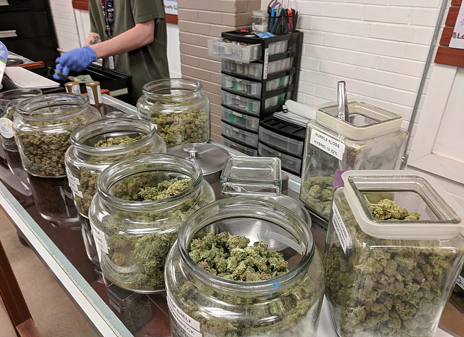As the cannabis industry experiences rapid global growth, companies like World High Life PLC (NEX: LIFE) and GreenStar Biosciences Corp. (CSE: GSTR) take advantage of emerging cannabis markets
According to the Brightfield Group the global legal cannabis market, which includes Canada, the United States, Israel, parts of Europe and Latin America, will exceed 12 billion euros in value by 2019.
Data provided by the consultant at the opening of the sixth edition of the Cannabis World Congress and Business Exhibition in Los Angeles show that the United States represents 83% of the world market, reaching sales of $11 billion this year (EUR 10 billion), while Canada weighs 10% and Europe is worth 5% of the total.
By 2021, Europe will account for 13% of the global cannabis market, representing “massive growth in two years,” Brightfield Group’s director of customer services, Claire Kaufmann, said in a presentation of the consultant’s research.
The official said that one of the most important trends at this time is the expansion of the market for products with only CBD (cannabidiol) and without the component with psychotropic effects THC (tetrahydrocannabinol).
From $5 billion in 2019 (4.6 billion euros), the CBD market will grow to 23.7 billion in 2023 in the United States (21.6 billion euros), while Europe will experience a 400% jump in the next four years. The UK, Austria, Germany, Switzerland and Spain are the European countries where Brightfield Group forecasts the most significant growth.
We can already see significant movement in the European cannabis sector. World High Life PLC (NEX: LIFE), recently proposed a deal to the UK’s leading CBD company Love Hemp to acquire all their shares valued at 9 million GBP. Love Hemp sells CBD products in 1200 stores in the UK and has agreements with other networks like Boots, Superdrug, Sainsbury’s and Tesco. In 2020 the company is going to enter the German market, and World High Life is planning to partner them in this European expansion.
“Many brands are coming together to include CBD in products they already have on the market,” said Claire Kaufmann, describing cannabidiol as “just another ingredient” to use, which explains the rapid pace of expansion.
Products that do not contain THC are subject to fewer restrictions and can be sold in all U.S. markets, where marijuana is legal for medical purposes in 33 states and for recreational use in 11 states, but has not yet been legalized at the federal level.
The U.S. states that have legalized cannabis have attracted significant foreign investment. A Canadian company, GreenStar Biosciences Corp. (CSE: GSTR), entered the Washington state market by securing a partnership with the local leading producer and distributor of recreational cannabis, Cowlitz. Ever since establishment in 2015, Cowlitz grew significantly with GreenStar’s support. At the end of 2018, the company recorded a revenue of $14.6 million and continuously reports quarterly revenue of $4 million and growing.
GreenStar is planning on securing more successful partnerships, such as Capri, a recent joint venture with Progressive Herbs Inc. Capri is a licenced owner of a patent-pending proprietary cultivation technology that allows cannabis crops to be harvested faster and with less resources, while maintaining high quality and high THC level.
As the legalization among the U.S. states continues, companies like GreenStar Biosciences will continue to invest in this growing sector.
“We’re seeing a lot of non-cannabis brands coming into this space,” Kaufmann said, noting that vertical consolidation in the industry is underway.
According to research by the Brightfield Group, which analyzed the profile of marijuana users in the United States, 51% of consumers are women and 57% are under the age of 40. Nearly half, 46 percent, use marijuana five or more times a week, and 70 percent have college degrees with a particular interest in science. What leads to use in women is primarily the intention to calm anxiety and reduce stress, and in the older consumer group the main reason is related to chronic pain treatment.
“There’s no place in the cannabis industry that isn’t changing,” said Claire Kaufmann, considering that as recreational marijuana use becomes legal, the distinction between medicinal and recreational applications will be blurred.


